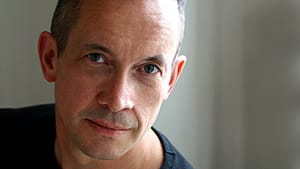Stay in the Loop
BSR publishes on a weekly schedule, with an email newsletter every Wednesday and Thursday morning. There’s no paywall, and subscribing is always free.
World in turmoil? Here’s hope
Chamber Orchestra and Bach at 7

Bartok’s Music for Strings, Percussion, and Celeste should be played more often. It’s one of my favorite pieces — my late wife’s too — but I believe the Chamber Orchestra of Philadelphia’s latest performance was only the second or third time I’ve heard it live.
Bartok wrote it for a chamber orchestra, but there’s nothing small scale about its impact. Ignat Solzhenitsyn and the Chamber Orchestra musicians gave it a performance that brought out all its raw power.
The term that best describes its overall effect, in my opinion, is “controlled dissonance.” My wife and I both agreed that was the quality that appealed to us. It’s packed with so much tension that you feel it’s constantly on the verge of falling apart. But Bartok keeps it under control all the way to the end.
That combination of tight control and seething inner conflict can be an attractive trait in people. It may even bear some special significance for those of us who’ve lived with the global tensions that mankind has created during the last century.
Bartok was experimenting with new approaches when he wrote the Music for Strings, Percussion, and Celeste in 1936. He may not have seen any relationship between his music and the world around him at that time, but I respond to his later works in the same way I respond to most of Shostakovich’s output. Their music may seem odd or revolutionary to tastes conditioned by the classics created during the 19th century, but I felt both of them were speaking my language as soon as I heard them. They wrote music for people whose day-to-day soundscapes are dominated by the discords and clamors of the machine age, rather than bird songs and rustling tree leaves.
Solzhenitsyn followed the Bartok with a performance of Mendelssohn’s Scottish symphony that endowed a 19th-century staple with all the life he had poured into Bartok’s 20th-century complexities. But for me, the Bartok was the concert’s major attraction.
Bach meets Dove
The other noteworthy event of my musical week took place just two days later, when I encountered the music of an English composer named Jonathan Dove.
Matthew Glandorf, music director of the Bach at Seven series, likes to combine Bach cantatas with modern works that have some association with Bach’s work. For his April 6 concert, the modern work was Jonathan Dove’s 2002 work Kothener Messe — a short setting of the Latin mass based on fragments from Bach’s Brandenburg concertos. The result of this stroke of genius is a piece that permeates the mass with the bounce and joie de vivre of the Brandenburgs.
According to his web biography, Dove has inherited some of the qualities that made Benjamin Britten popular with choral organizations. His The Passing of the Year — a large work setting seven poems that follow the year from spring to New Year’s Eve — will be performed by Philadelphia’s Mendelssohn Club on Sunday, May 1 at 4 p.m. at the Lutheran Church of the Holy Communion. I will be there.
What, When, Where
Chamber Orchestra of Philadelphia: Bartok, Music for Strings, Percussion, and Celeste; Mendelssohn, Symphony No. 3 in A Minor (“Scottish”). Ignat Solzhenitsyn, conductor. April 4, 2016 at Perelman Theater, Kimmel Center, Broad and Spruce Sts., Philadelphia. (215) 545-5451 or www.chamberorchestra.org.
Bach at Seven: Dover, Kothener Messe. Philadelphia Bach Collegium with Choral Arts Philadelphia. Matthew Glandorf, conductor. April 6, 2016 at St. Clement’s Church, 21st and Appletree Sts., Philadelphia. (267) 240-2586 or www.choralarts.com.
Sign up for our newsletter
All of the week's new articles, all in one place. Sign up for the free weekly BSR newsletters, and don't miss a conversation.

 Tom Purdom
Tom Purdom